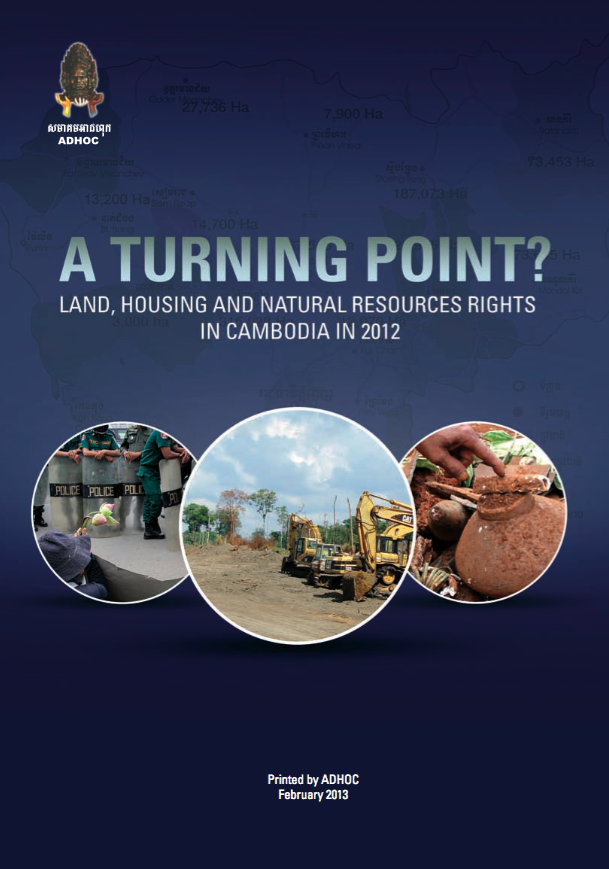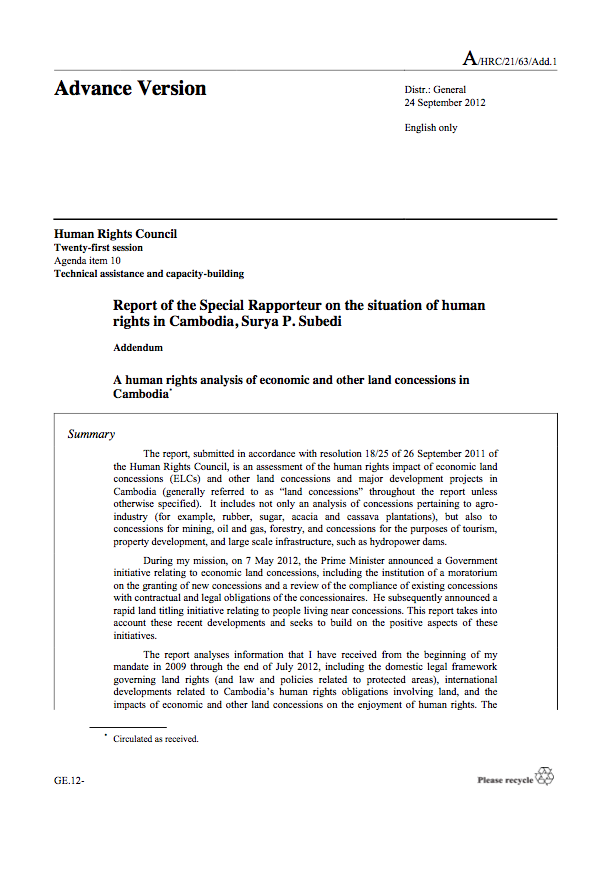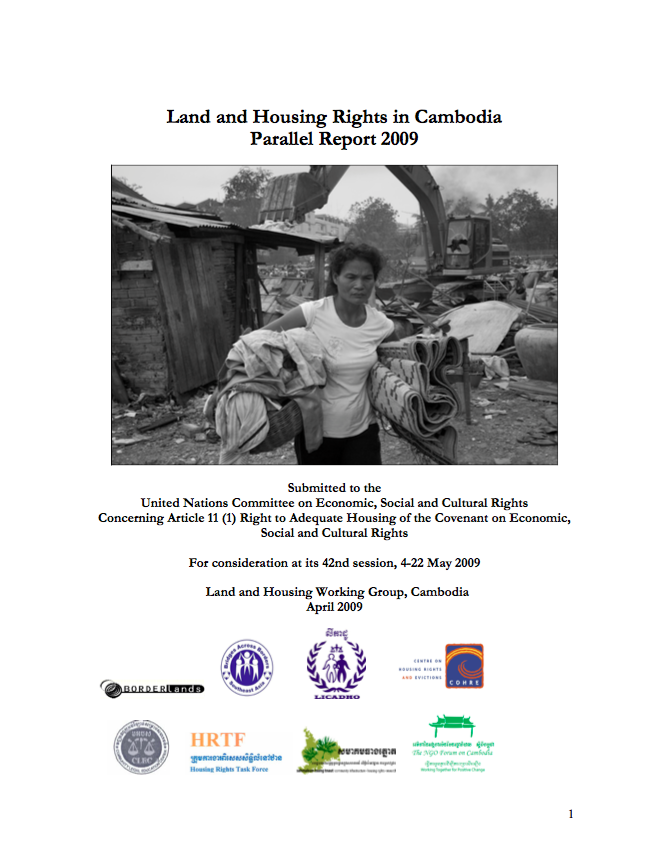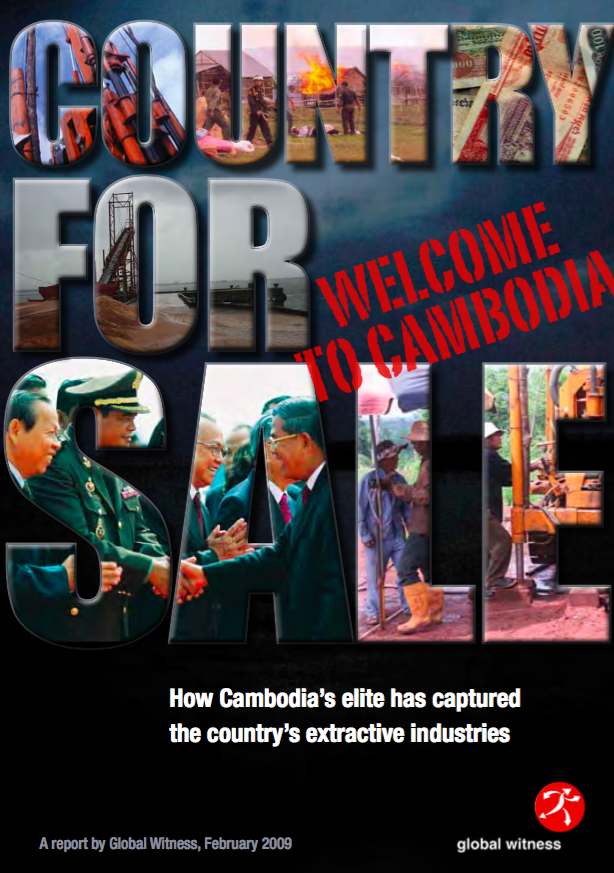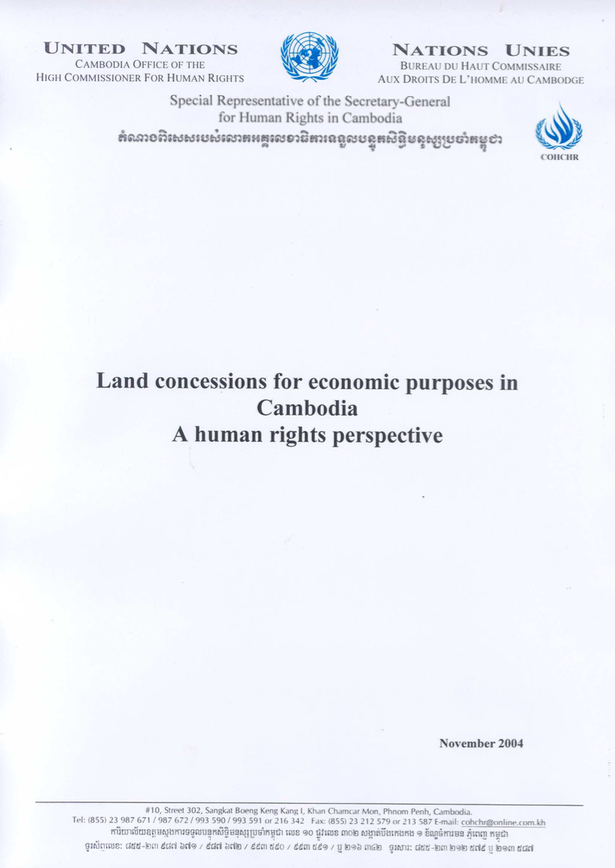Latest Entries
A Turning Point? Land Housing and Natural Resources Rights in Cambodia in 2012
Publication Year: 2013 / Sources: ADHOCThis report is intended to be comprehensive. It deals with land concessions, land disputes, forced evictions and encroachment on natural resources from a human rights and development perspective. However, extractive industries are beyond its scope.
Report of the Special Rapporteur on the situation of human rights in Cambodia
Publication Year: 2012 / Sources: Human Rights CouncilThe report, submitted in accordance with resolution 18/25 of 26 September 2011 of the Human Rights Council, is an assessment of the human rights impact of economic land concessions (ELCs) and other land concessions and major development projects in Cambodia (generally referred to as ―land concessions‖ throughout the report unless otherwise specified). It includes not only an analysis of concessions pertaining to agro- industry (for example, rubber, sugar, acacia and cassava plantations), but also to concessions for mining, oil and gas, forestry, and concessions for the purposes of tourism, property development, and large scale infrastructure, such as hydropower dams.
Land and Housing Rights in Cambodia Parallel Report 2009
Publication Year: 2009 / Sources: Land and Housing Working GroupThe Working Group is aware of the Cambodian Government’s (hereafter “the Government”) stated efforts to comply with its obligations under the International Covenant on Economic, Social and Cultural Rights (hereafter “the Covenant”), as detailed in its State Party Report 2008 on Covenant implementation to the Committee. These measures have been insufficient to ensure the implementation of the Covenant with regard to Article 11(1) on the right to adequate housing, as a component of the right to an adequate standard of living. The Government has failed in its obligations to protect, respect and fulfil the right to adequate housing as interpreted by the Committee in its General Comments No. 4 on the right to adequate housing and General Comment No. 7 on forced evictions. While this failure has occurred with respect to most or all elements of the right to adequate housing, this report focuses on the most severe violation of the right, the failure to guarantee legal security of tenure and the resulting epidemic of forced evictions across Cambodia.
Country for Sale
Publication Year: 2009 / Sources: Global WitnessThis report is based on investigations carried out by Global Witness in 2008 and looks at one part of this wider phenomenon – the emerging oil, gas and mineral sectors. It makes the case for greater efforts by the Cambodian government and the country’s international donors to strengthen the governance of these resources.
Land Concessions for Economic Purposes in Cambodia
Publication Year: 2004 / Sources: United Nations (Cambodia Office)Most of Cambodia’s people live in rural areas and depend on Cambodia’s land and natural resources for their livelihoods and subsistence. Today, pressures of a growing population, the loss and degradation of natural resources, and increasingly restricted access to land and forests are among the factors that are putting the welfare of the rural poor at ever greater risk. How land and natural resources are managed and administered, by whom, and for whose benefit, is crucial for continued political and economic stability in Cambodia.

